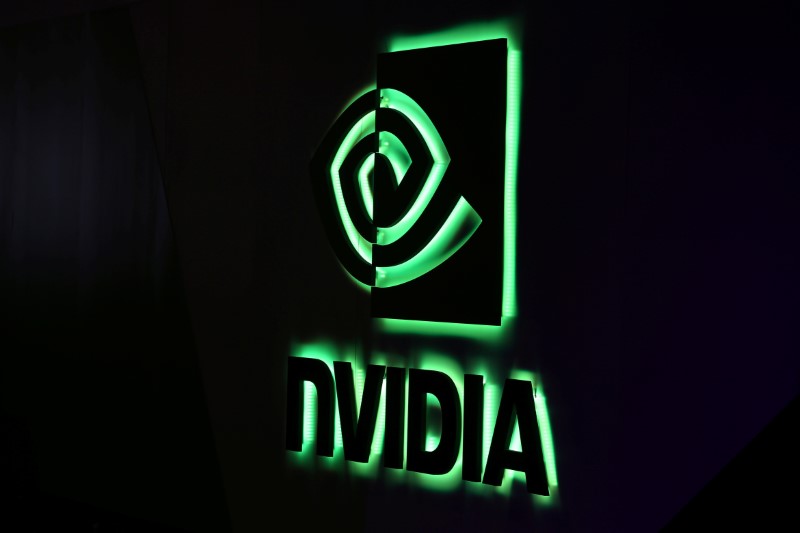Investing.com-- Shares of major Asian semiconductor companies surged on Thursday, tracking aftermarket gains in Nvidia after the chipmaker’s consensus-beating earnings and guidance fueled more hype over an AI-driven demand boom.
NVIDIA Corporation (NASDAQ:NVDA) rose as much as 10% in U.S. aftermarket trade after clocking stronger-than-expected fourth quarter earnings, while its revenue guidance for the current quarter was also above street estimates.
Gains in the chipmaker, which is at the heart of an AI-driven surge in valuation over the past year, spilled into Asian chip stocks, particularly those with exposure to AI and Nvidia.
Japanese semiconductor testing equipment maker Advantest Corp. (TYO:6857), which is also an Nvidia supplier, rose 5.1% and was within sight of a record high. Taiwan’s TSMC (TW:2330) (NYSE:TSM)- the world’s biggest contract chipmaker and a key Nvidia supplier- rose 1% and was also close to record highs.
South Korea’s SK Hynix Inc (KS:000660), which makes high-speed memory chips which are integral to AI development and which is also in a partnership with Nvidia, jumped nearly 4%, while Taiwan’s Hon Hai Precision Industry Co Ltd (TW:2317), also known as Foxconn, rose 0.5%.
Other chipmakers or chip-adjacent stocks advanced. Japanese tech investment giant SoftBank Group Corp. (TYO:9984) rose 4.6%, tracking overnight gains in its British chip designing unit Arm Holdings (NASDAQ:ARM), which recently saw its market capital double on its exposure to AI.
Tokyo Electron Ltd. (TYO:8035), Japan’s biggest chipmaker by value, rose 3.9%, while fiberglass products maker Nitto Boseki Co., Ltd. (TYO:3110) jumped 8% after Morgan Stanley (NYSE:MS) analysts upgraded the stock to overweight on the prospect of increased demand for special glass from the AI industry.
Semiconductor maker Dainippon Screen Mfg. Co., Ltd. (TYO:7735) jumped nearly 10% and was the best performer on Japan’s Nikkei 225 index.
Gains in tech also saw the Nikkei reach an intraday record high, crossing levels last seen in 1989 before the unwinding of a massive speculative bubble through the 1990’s and 2000’s.
Nvidia’s earnings helped further the notion that increasing demand for AI will help push up global chip demand, which was still reeling from a sharp downturn in tech investment in the wake of the COVID-19 pandemic.
The rush into AI development was sparked largely by the release of generative AIs such as OpenAI's ChatGPT program, which had spurred several major tech firms to roll out their own, similar offerings.
